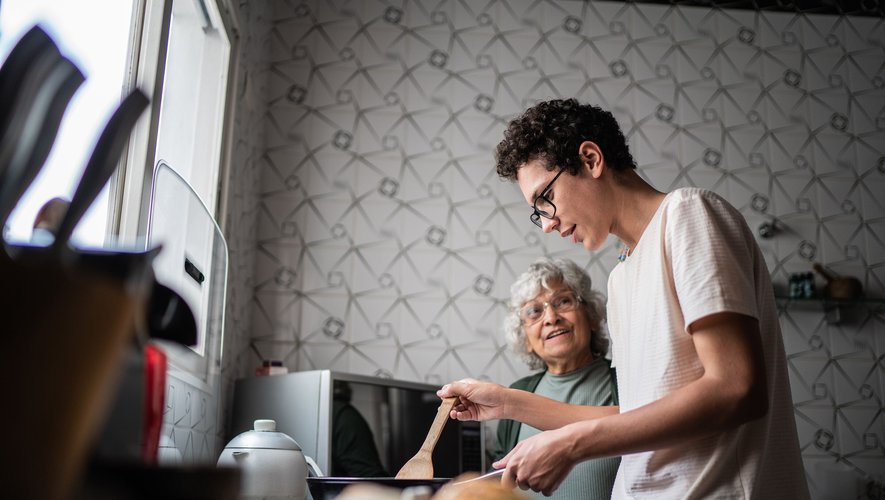(AFP) – Less than 5,000 elderly people with a loss of autonomy are housed in France with a “welcoming family”, a modest figure which is explained in particular by the unknown nature of this system.
In total, there are just over 8,400 family carers at the national level (a figure which has fallen by 10% in three years), and around 13,000 carers (-7.6% in three years), according to the 2022 figures communicated by the ‘IFREP (institute for training, research and evaluation of medico-social practices).
But nearly 64% of the people received fall within the field of disability, and not of old age. In the end, only around 4,750 seniors are therefore housed in a welcoming family home, a drop of water if we compare to the approximately 600,000 residents of the 7,400 nursing homes.
The profession of family caregiver – 85% female – is aging: nearly 80% of caregivers are over 50 years old. “We don’t do this at 20, but rather in the second part of our career”, deciphers Olivier Kornprobst, president of Famidac, the national association of family carers.
“Rather than a job, it’s a way of life, with a large human component, but a lot of constraints, because we are there all the time. If we want to be absent, we have to find a replacement, so it’s complicated , people are burning out,” he adds.
Not very widespread, this mode of reception is however not full: officially 17,461 places in France, of which a quarter are not occupied, mainly because the device remains largely unknown to families, underlines Mr. Kornprobst.
Another obstacle: people wishing to embark on this activity do not always have housing adapted to aging, according to Alexandre Nicolet, co-founder of “Mon Senior”, a company which wants to develop this concept by building adapted houses.
In June, his company will open in the Ain a first “hamlet” of three new houses: in each three seniors live on the ground floor, where they each have their own bathroom with walk-in shower, while their host lives with her family upstairs. A carer can thus be absent briefly – for example, to do the shopping – and count on the relay of the other two. Thirty other similar “hamlets” are due to open by the end of 2024 in Auvergne-Rhône-Alpes.
Despite the difficulties of recruitment in a sector which usually offers very low salaries, Mr. Nicolet says he has no trouble finding future hosts, who have the status of self-employed workers. With three people welcomed, they can indeed hope to earn 3,600 euros monthly net.
Audrey Jaquet, who welcomes only one full-time old lady, confides for her part to earn more than 2,000 euros net: “it looks like the status of autoentrepreneur”. If the only person welcomed leaves, “we are not entitled to unemployment”.

